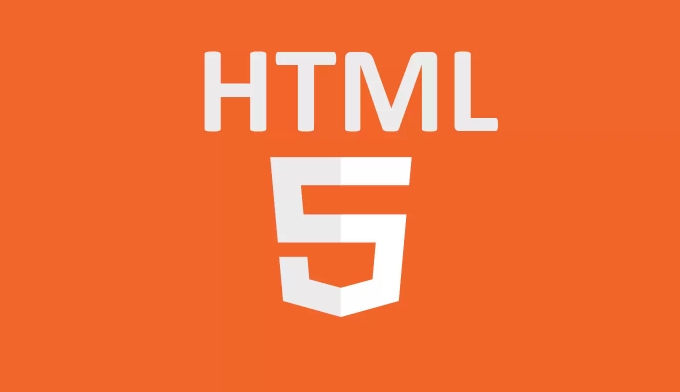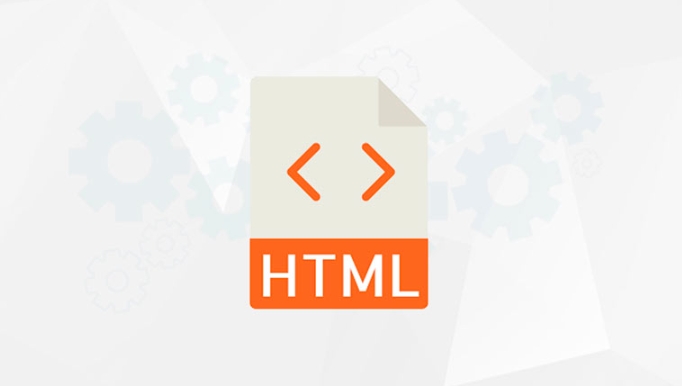 Web Front-end
Web Front-end
 HTML Tutorial
HTML Tutorial
 What is the difference between aria-label, aria-labelledby, and aria-describedby?
What is the difference between aria-label, aria-labelledby, and aria-describedby?
What is the difference between aria-label, aria-labelledby, and aria-describedby?
Jul 14, 2025 am 02:11 AMThe ARIA attributes aria-label, aria-labeledby and aria-describedby have different uses and need to be selected according to the scene. 1. Use aria-label to provide direct accessible names for elements with no visible labels. For example, the button "?" can be recognized by the screen reading software as a "close button" through aria-label="Close". 2. Use aria-labelledby to refer to existing visible tags on the page. It is suitable for elements with existing visual tags. For example, the form input box can be associated with its corresponding <label> tag through aria-labelledby. 3. Use aria-describedby to add additional description information to the element, which is often used for prompts, error messages or operation instructions. For example, the input box can be associated with the prompt text "Must be at least 6 characters long" below through aria-describedby. The correct selection of these three attributes depends on whether there is a visible tag and whether the name or additional description needs to be provided.

When building accessible web interfaces, ARIA (Accessible Rich Internet Applications) attributes play a cruel role in helping screen readers interpret and convey information to users. Among the most commonly confused ARIA properties are aria-label , aria-labelledby , and aria-describedby . Each serves a specific purpose for labeling or describing elements, but they're not interchangeable.

Here's how they differ and when to use each:
Use aria-label when you need a simple, hidden label
aria-label provides an accessible name to an element using plain text. It's useful when there isn't a visible label already present on the page.

For example:
<button aria-label="Close">?</button>
In this case, the button shows only an "X" symbol. Screen readers will announce it as “Close button,” making its function clear without adding visible text.

Key points:
- Use it when no visible text label exists.
- Avoid duplicating visible text with the same label — that can cause repetition for screen reader users.
- Don't use if the label needs to be dynamic or pulled from another element.
Use aria-labelledby when you want to reference a visible label
aria-labelledby tells assistive technologies to use the text of another element as the label by referencing its id .
Example:
<h2 id="title">User Settings</h2> <div aria-labelledby="title"> This section lets you adjust your account preferences. </div>
Here, the div gets its label from the heading above it.
Why it's useful:
- Keeps labels consistent between visual and assistive tech users.
- Allows multiple elements to share the same label by referencing one ID.
- Great for custom widgets or regions where native HTML doesn't provide semantics.
You might also use it for form elements that already have a visible <label> :
<label id="search-label" for="search">Search</label> <input type="text" id="search" aria-labeledby="search-label">
Use aria-describedby when you need to add extra descriptive text
aria-describedby works like a helper message — it references one or more elements that provide additional context or instructions.
Example:
<label for="username">Username</label> <p id="username-info">Must be at least 6 characters long.</p> <input type="text" id="username" aria-describedby="username-info">
Now, screen readers will read the input's label normally and may also announce the description depending on the user's settings and screen reader behavior.
Best practices:
- Use it for hints, error messages, or instructions.
- Don't overload it — too many descriptions can become noise.
- Make sure the described content is meaningful and not redundant.
All three attributes help make UIs more accessible, but they serve different roles:
-
aria-label: gives an element an accessible name directly. -
aria-labelledby: links to a visible label elsewhere on the page. -
aria-describedby: adds descriptive text that supports understanding.
Choosing the right one depends on whether a visible label exists, and whether you're providing a name or extra explanation.
That's basically it — straightforward once you know what each is meant for.
The above is the detailed content of What is the difference between aria-label, aria-labelledby, and aria-describedby?. For more information, please follow other related articles on the PHP Chinese website!

Hot AI Tools

Undress AI Tool
Undress images for free

Undresser.AI Undress
AI-powered app for creating realistic nude photos

AI Clothes Remover
Online AI tool for removing clothes from photos.

Clothoff.io
AI clothes remover

Video Face Swap
Swap faces in any video effortlessly with our completely free AI face swap tool!

Hot Article

Hot Tools

Notepad++7.3.1
Easy-to-use and free code editor

SublimeText3 Chinese version
Chinese version, very easy to use

Zend Studio 13.0.1
Powerful PHP integrated development environment

Dreamweaver CS6
Visual web development tools

SublimeText3 Mac version
God-level code editing software (SublimeText3)

Hot Topics
 How do I stay up-to-date with the latest HTML standards and best practices?
Jun 20, 2025 am 08:33 AM
How do I stay up-to-date with the latest HTML standards and best practices?
Jun 20, 2025 am 08:33 AM
The key to keep up with HTML standards and best practices is to do it intentionally rather than follow it blindly. First, follow the summary or update logs of official sources such as WHATWG and W3C, understand new tags (such as) and attributes, and use them as references to solve difficult problems; second, subscribe to trusted web development newsletters and blogs, spend 10-15 minutes a week to browse updates, focus on actual use cases rather than just collecting articles; second, use developer tools and linters such as HTMLHint to optimize the code structure through instant feedback; finally, interact with the developer community, share experiences and learn other people's practical skills, so as to continuously improve HTML skills.
 How do I use the element to represent the main content of a document?
Jun 19, 2025 pm 11:09 PM
How do I use the element to represent the main content of a document?
Jun 19, 2025 pm 11:09 PM
The reason for using tags is to improve the semantic structure and accessibility of web pages, make it easier for screen readers and search engines to understand page content, and allow users to quickly jump to core content. Here are the key points: 1. Each page should contain only one element; 2. It should not include content that is repeated across pages (such as sidebars or footers); 3. It can be used in conjunction with ARIA properties to enhance accessibility. Usually located after and before, it is used to wrap unique page content, such as articles, forms or product details, and should be avoided in, or in; to improve accessibility, aria-labeledby or aria-label can be used to clearly identify parts.
 How do I create a basic HTML document?
Jun 19, 2025 pm 11:01 PM
How do I create a basic HTML document?
Jun 19, 2025 pm 11:01 PM
To create a basic HTML document, you first need to understand its basic structure and write code in a standard format. 1. Use the declaration document type at the beginning; 2. Use the tag to wrap the entire content; 3. Include and two main parts in it, which are used to store metadata such as titles, style sheet links, etc., and include user-visible content such as titles, paragraphs, pictures and links; 4. Save the file in .html format and open the viewing effect in the browser; 5. Then you can gradually add more elements to enrich the page content. Follow these steps to quickly build a basic web page.
 How do I minimize the size of HTML files?
Jun 24, 2025 am 12:53 AM
How do I minimize the size of HTML files?
Jun 24, 2025 am 12:53 AM
To reduce the size of HTML files, you need to clean up redundant code, compress content, and optimize structure. 1. Delete unused tags, comments and extra blanks to reduce volume; 2. Move inline CSS and JavaScript to external files and merge multiple scripts or style blocks; 3. Simplify label syntax without affecting parsing, such as omitting optional closed tags or using short attributes; 4. After cleaning, enable server-side compression technologies such as Gzip or Brotli to further reduce the transmission volume. These steps can significantly improve page loading performance without sacrificing functionality.
 How do I create checkboxes in HTML using the element?
Jun 19, 2025 pm 11:41 PM
How do I create checkboxes in HTML using the element?
Jun 19, 2025 pm 11:41 PM
To create an HTML checkbox, use the type attribute to set the element of the checkbox. 1. The basic structure includes id, name and label tags to ensure that clicking text can switch options; 2. Multiple related check boxes should use the same name but different values, and wrap them with fieldset to improve accessibility; 3. Hide native controls when customizing styles and use CSS to design alternative elements while maintaining the complete functions; 4. Ensure availability, pair labels, support keyboard navigation, and avoid relying on only visual prompts. The above steps can help developers correctly implement checkbox components that have both functional and aesthetics.
 How has HTML evolved over time, and what are the key milestones in its history?
Jun 24, 2025 am 12:54 AM
How has HTML evolved over time, and what are the key milestones in its history?
Jun 24, 2025 am 12:54 AM
HTMLhasevolvedsignificantlysinceitscreationtomeetthegrowingdemandsofwebdevelopersandusers.Initiallyasimplemarkuplanguageforsharingdocuments,ithasundergonemajorupdates,includingHTML2.0,whichintroducedforms;HTML3.x,whichaddedvisualenhancementsandlayout
 How do I use the element to represent the footer of a document or section?
Jun 25, 2025 am 12:57 AM
How do I use the element to represent the footer of a document or section?
Jun 25, 2025 am 12:57 AM
It is a semantic tag used in HTML5 to define the bottom of the page or content block, usually including copyright information, contact information or navigation links; it can be placed at the bottom of the page or nested in, etc. tags as the end of the block; when using it, you should pay attention to avoid repeated abuse and irrelevant content.
 How do I use the tabindex attribute to control the tab order of elements?
Jun 24, 2025 am 12:56 AM
How do I use the tabindex attribute to control the tab order of elements?
Jun 24, 2025 am 12:56 AM
ThetabindexattributecontrolshowelementsreceivefocusviatheTabkey,withthreemainvalues:tabindex="0"addsanelementtothenaturaltaborder,tabindex="-1"allowsprogrammaticfocusonly,andtabindex="n"(positivenumber)setsacustomtabbing





